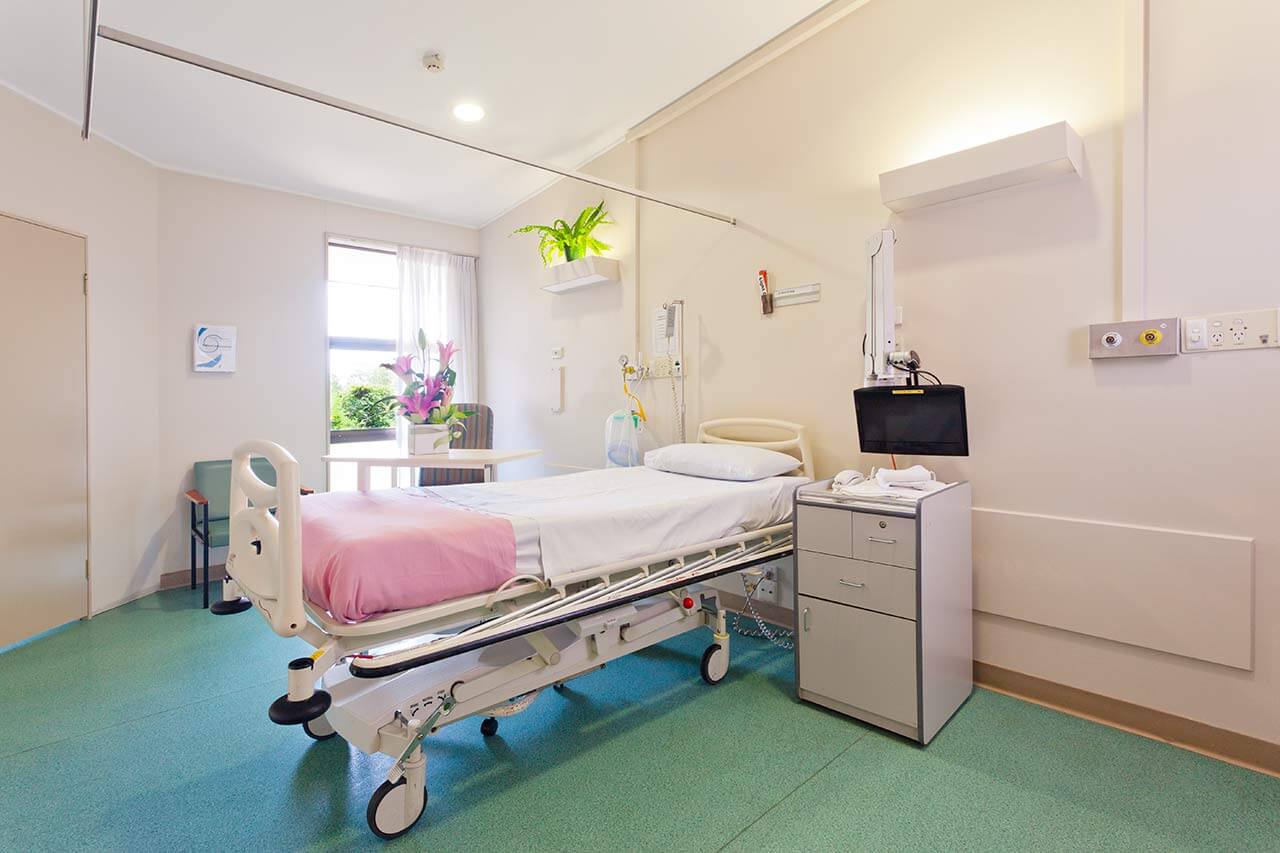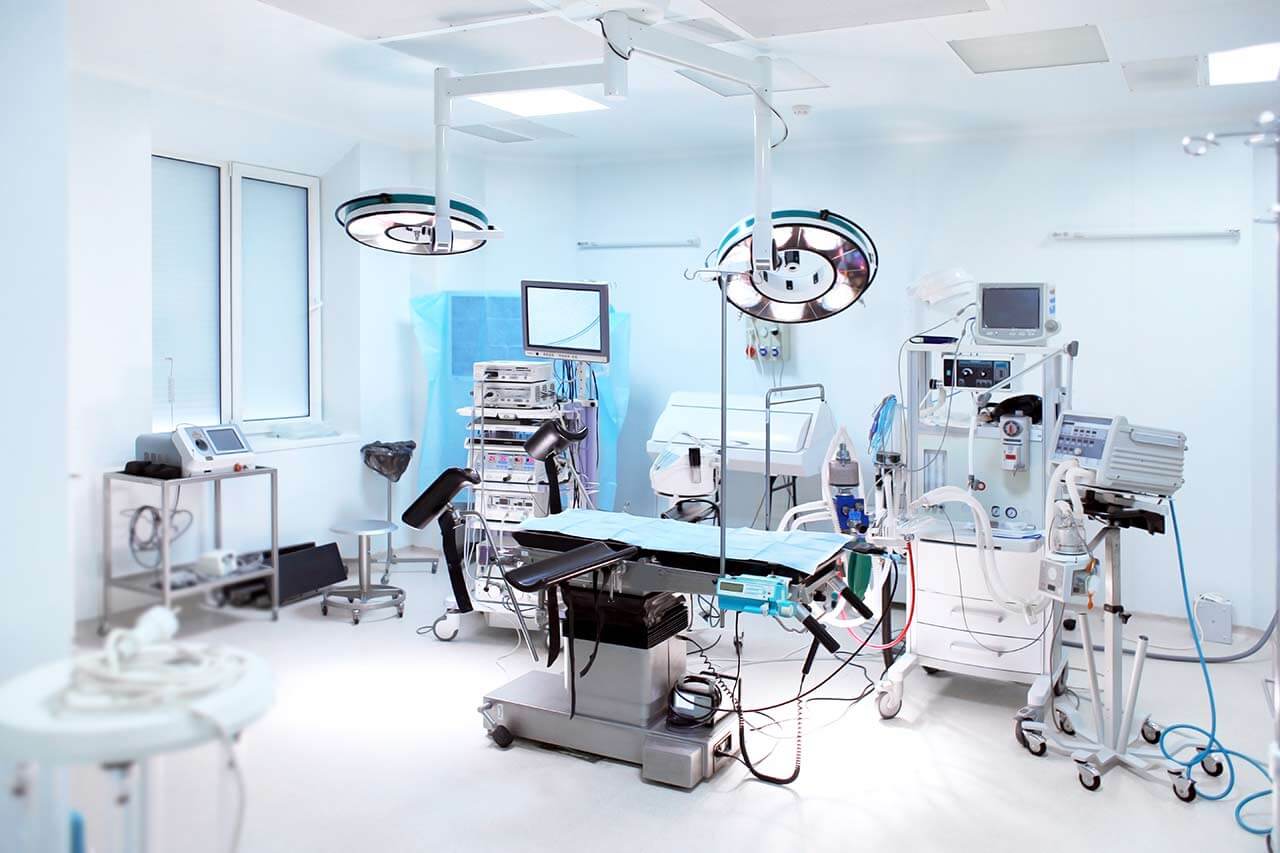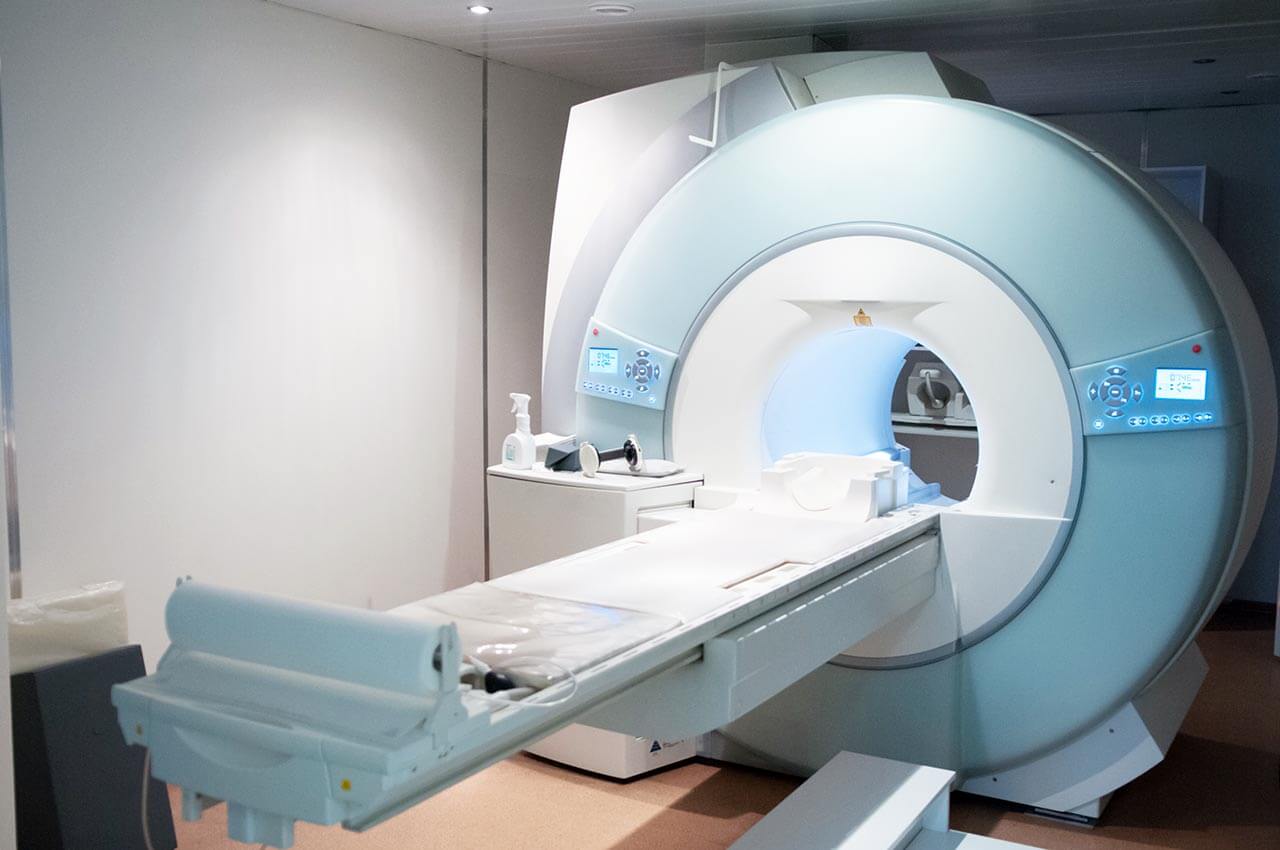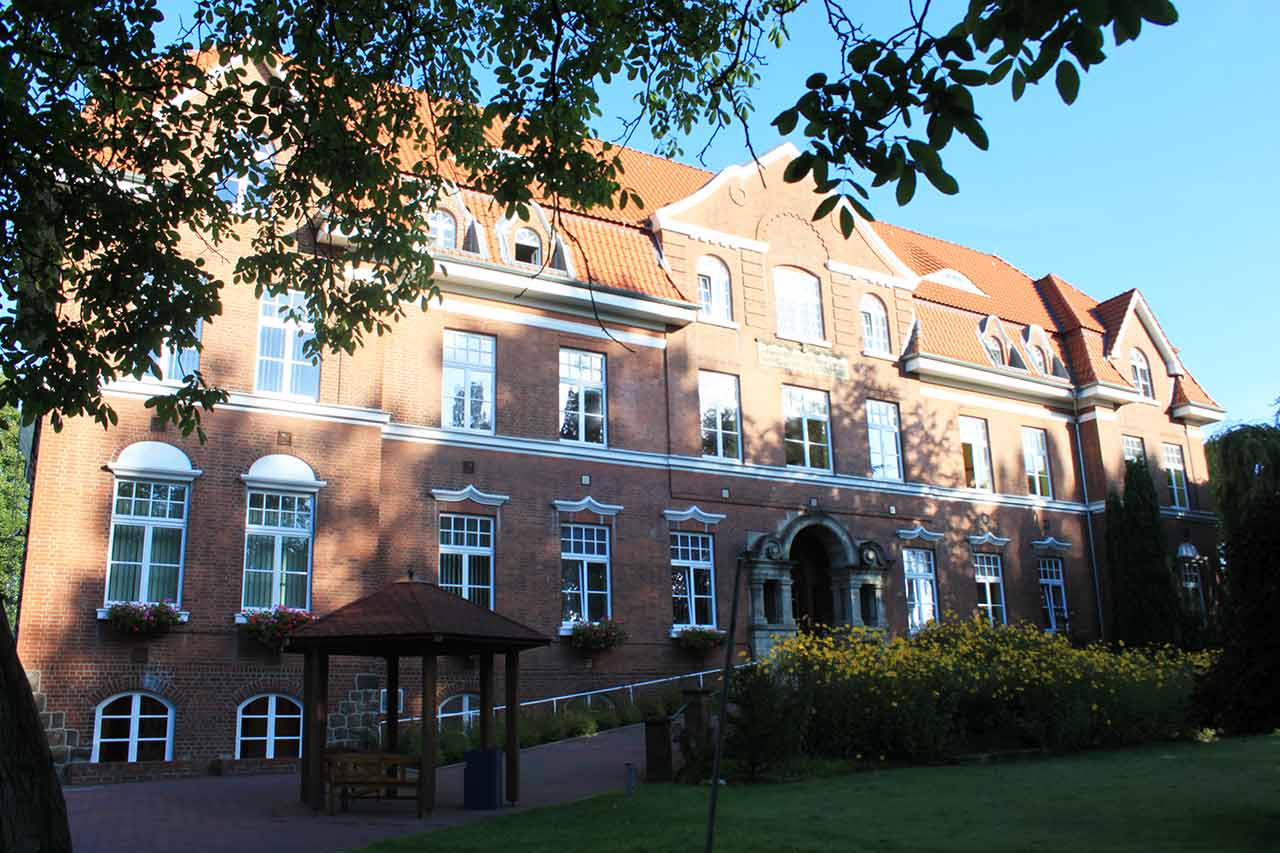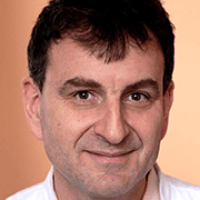
The program includes:
- Initial presentation in the hospital
- Clinical history taking
- Review of medical records
- Physical examination
- Laboratory tests:
- complete blood count
- biochemical analysis of blood
- tumor markers
- indicators of inflammation
- coagulation tests
- Ultrasound scan of the abdomen
- Differential diagnosis with other diseases
- Chemotherapy (1 course)
- Cost of essential medicines
- Nursing services
- Consultation of related specialists (tumor board)
- Treatment by chief physician and all leading experts
- Elaboration of further recommendations
How program is carried out
During the first visit, the doctor will conduct a clinical examination and go through the results of previous laboratory tests and instrumental examinations. After that, you will undergo an additional examination, including laboratory assessment of liver and kidney function, ultrasound scan. Based on the received results, the doctor will elaborate the chemotherapy regimen. If necessary, related medical specialists will be involved in the elaboration of a treatment regimen (tumor board).
Chemotherapy is carried out as the day hospital procedure, without mandatory admission to the hospital. After the placement of a venous catheter, you will stay in a comfortable ward. An infusion system will be connected to the catheter, through which the required drug or a drug combination will be administered. All drugs are administered by intravenous drip, slowly, so the total duration of the infusion can be up to several hours. All this time, doctors and nurses will monitor your health condition closely.
After the course of chemotherapy, you will stay under medical supervision in the ward for a few more hours. If your general condition is good, your doctor will allow you to leave the hospital. You will receive the medical report with detailed recommendations regarding further treatment. In the future, you will be able to have a distant consultation with your attending physician and schedule the next course of chemotherapy, if necessary.
Required documents
- Medical records
- MRI/CT scan (not older than 3 months)
- PSMA PET/CT (if available)
- Biopsy results (if available)
Service
You may also book:
 BookingHealth Price from:
BookingHealth Price from:
About the department
The Department of Pulmonology and Pulmonary Oncology at the Evangelical Lung Hospital Berlin offers the full range of diagnostics, treatment and follow-up monitoring for patients with respiratory diseases. The department’s key clinical focuses include the treatment of acute and chronic lung diseases, such as bronchial asthma, bronchitis, emphysema, pulmonary fibrosis, as well as the treatment of cancer and sleep-related breathing disorders. In 2009, the department was certified by the German Cancer Society in lung cancer treatment and meets these standards to the present day. In addition, the department's medical team has more than 20 years of experience in treating rare pulmonary diseases, including alpha-1 antitrypsin deficiency and pulmonary arterial hypertension. The clinical practice involves the use of only reliable and highly effective treatment methods, which guarantee the cure of even the most complex clinical cases. The department is headed by Prof. Dr. med. Christian Grohé.
The department has the very latest resources and unique experience in the treatment of lung cancer. It annually treats about 3,500 patients, while 600 of them are patients with newly diagnosed oncological pathologies. Lung tumors are treated using an interdisciplinary approach with the participation of pulmonologists, thoracic surgeons, radiation therapists, oncologists, specialists in pain therapy, radiologists and pathologists. Within the framework of daily tumor boards, each patient receives an individual treatment regimen, corresponding to the advanced scientific achievements.
The department also has an accredited Sleep Laboratory and is the Weaning Center (accreditation of the German Society of Pulmonology and Mechanical Ventilation).
The department's specialists have rich experience and expert knowledge in the field of medical care for patients with newly diagnosed tuberculosis. In addition, the department's pulmonologists are involved in the research and treatment of such rare diseases as alpha-1 antitrypsin deficiency and pulmonary hypertension.
The department also operates a specialized Outpatient Center, which coordinates outpatient treatment and provides optimal follow-up monitoring for patients with lung diseases upon the completion of the main course of therapy.
The department specializes in the diagnostics and treatment of the following diseases:
- Benign pathologies
- Chronic obstructive pulmonary disease (COPD)
- Interstitial lung diseases
- Infectious lung diseases (pneumonia, tuberculosis)
- Benign pleural diseases
- Benign mediastinal diseases
- Occupational diseases of the lungs and pleura (for example, caused by the contact with asbestos)
- Congenital lung diseases
- Chronic cough
- Pulmonary emphysema
- Sarcoidosis
- Pulmonary fibrosis
- Lung lesions in autoimmune diseases
- Bronchial asthma
- Pulmonary hypertension
- Alpha-1 antitrypsin deficiency
- Insecticide allergy
- Sleep-related breathing disorders (obstructive sleep apnoea)
- Rare lung diseases (for example, histiocytosis X, lymphangioleiomyomatosis, alveolar proteinosis)
- Malignant pathologies
- Small cell lung cancer
- Non-small cell lung cancer (squamous cell carcinoma, adenocarcinoma)
- Large cell lung cancer
- Lung metastases
- Mediastinal tumors
- Pleural cancer (including pleural metastases)
- Pleural mesothelioma
- Tumors of unknown origin and rare tumors
- Other diseases
The department's range of diagnostic and therapeutic services includes:
- Diagnostics
- Diagnostics of allergic reactions (prick tests, blood tests)
- CT-guided percutaneous lung biopsy
- Echocardiography
- Ultrasound scanning of the lungs and pleura
- Diagnostic pleural puncture
- Right heart catheterization
- Bronchoscopy
- Flexible and rigid bronchoscopy
- Biopsy of the bronchi and lungs
- Bronchoalveolar lavage for diagnostic purposes
- Endobronchial ultrasound scanning
- Pulmonary function testing
- Ergometry
- Spiroergometry
- Salbutamol spirography
- Diagnostics for suspected lung cancer
- Bronchoscopy with biopsy
- Mediastinoscopy
- Pulmonary function testing
- X-ray and CT scanning
- Ultrasound diagnostics (sonography)
- Magnetic resonance imaging
- Computer aided diagnosis (CAD)
- Positron emission tomography (PET) (in collaboration with partner clinics)
- Therapy
- Mechanical ventilation at night (CPAP, BiPAP)
- Ventilation therapy for chronic respiratory failure (ventilation using a special mask, tracheostomy)
- Home mechanical ventilation and outpatient care
- Weaning
- Lung ventilation in the case of pathologies of the respiratory muscles in adults (for example, in amyotrophic lateral sclerosis)
- Therapeutic pleural puncture
- Bronchoscopy
- Bronchoalveolar lavage for therapeutic purposes
- Removal of tumors from the trachea and bronchi
- Stent implantation in the trachea and bronchi
- Preparation for lung transplantation
- Smoking cessation programs
- Curative tumor therapy
- Chemotherapy
- Radiation therapy
- Bronchoscopic removal of tumors from the respiratory tract
- Antibody therapy
- Tyrosine kinase inhibitor therapy
- Palliative care
- Other diagnostic and therapeutic options
Curriculum vitae
Education
- 2014 Appointed as a Pulmonologist by the German Cancer Society (permission for certification of Lung Cancer Centers).
- 2011 Recognized as a Specialist in Palliative Care.
- 2004 Recognized as a Specialist in Cardiology.
- 2002 Recognized as a Specialist in Pulmonology.
- 1999 Habilitation.
- 1996 Recognized as a Specialist in Internal Medicine.
- 1989 Admission to medical practice.
- 1982 - 1988 Study of Human Medicine in Bonn, Berlin, Zürich, Boston.
Professional Career
- Since 2014 Medical Director at the Amsee Hospital, Waren an der Müritz.
- Since 2007 Chief Physician of the Department of Pulmonology and Pulmonary Oncology at the Evangelical Lung Hospital Berlin.
- 1999 - 2007 Leading Senior Physician in the Department of Pulmonology and Head of the Research Laboratories, Department of Internal Medicine II, University Hospital Bonn.
- 1992 - 1999 Medical training in Internal Medicine, University of Bonn.
- 1990 - 1992 Postdoctoral Fellow of the German Research Society (Prof. R. S. Williams), UT Southwestern Medical Center, Dallas, USA.
- 1989 - 1990 Internship, Department of Internal Medicine, University Hospital Bonn.
Other Activities
- Publisher of the German Medical Weekly.
- Co-Publisher of "Pulmonology".
- Board Member of the Berlin Cancer Society.
- Board Member of the Thoracic Oncology in the Working Group on Internal Medicine (AIO) of the German Cancer Society.
- Board Member of the Neuroendocrine Tumour Registry.
Memberships in Professional Societies
- German Society of Pulmonology.
- German Society of Cardiology.
- German Cancer Society.
- European Respiratory Society.
- American Thoracic Society.
- American Heart Association.
- German Society of Internal Medicine.
Photo of the doctor: (c) Evangelischen Lungenklinik Berlin
About hospital
The Evangelical Lung Hospital Berlin ranks among 10 largest highly specialized medical facilities in Germany for the treatment of lung diseases of varying severity. The medical complex is a well-known specialized hospital for the treatment of acute and chronic diseases of the lungs and other thoracic organs. The hospital was founded in 1952 and is an academic medical facility at the Charite University Hospital Berlin. It also closely collaborates with the Tumor Center Berlin-Buch. The hospital's medical team annually treats more than 6,530 inpatients and 10,669 outpatients. Patient satisfaction with the quality of medical care is confirmed by a bronze award from eKomi, which is the largest independent portal in Europe for the collection of reliable reviews.
The hospital is the Competence Center for Thoracic Surgery, the certified Lung Cancer Center, as well as the accredited Somnology Center and the Wening Center. Another priority field is the comprehensive palliative care for patients with incurable pulmonological pathologies. The specially trained doctors, medical staff and experts in the field of psycho-oncology and physiotherapy, as well as social workers make every effort to ensure the highest possible quality of life for severely ill patients.
Thanks to the use of state-of-the-art medical equipment, the outstanding experience of doctors, competent care and an individual approach to each clinical case, the hospital regularly demonstrates the highest rates of treatment success. The excellent level of treatment quality is confirmed by the DIN EN ISO 9001:2015 certificate.
Since its foundation, the hospital has been actively researching and developing new treatment methods. The active participation and success in the training of medical workers and clinical research still testify to this tradition. The doctors of the hospital carry out research projects in national and international groups and regularly publish the results. All this contributes to the implementation of innovative developments into clinical practice, which help to save human lives.
The basis of medical care in the hospital is a human attitude to each patient. During detailed consultations, the patients and their relatives receive all the information about each stage of treatment, discuss possible alternative treatment options and the predicted result. The personal needs and wishes of the patient are always taken into account.
Photo: (c) depositphotos
Accommodation in hospital
Patients rooms
The patients of the Evangelical Lung Hospital Berlin live in comfortable rooms made in bright colors. The room includes an automatically adjustable bed, a bedside table, a wardrobe for clothes, a table and chairs for receiving visitors, a safe, a telephone, a TV and a radio. Internet is available at extra cost.
Meals and Menus
The hospital offers a varied diet. During registration at the hospital you will receive a menu for a week, so you can choose breakfast, lunch and dinner to your taste or make an individual meal plan. The daily menu also includes vegetarian meals.
Further details
Standard rooms include:
Religion
The religious services can be provided upon request.
Accompanying person
During the inpatient program, an accompanying person may stay with the patient in the room or at a hotel. Our managers will help you choose the most suitable option.
Hotel
During the outpatient program, the patient may stay at the hotel. Our managers will help you choose the most suitable option.
